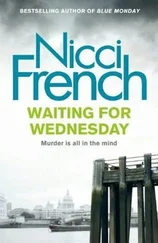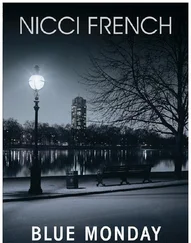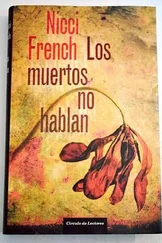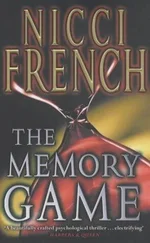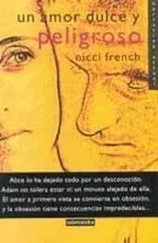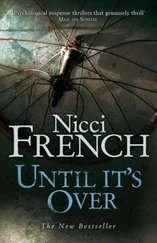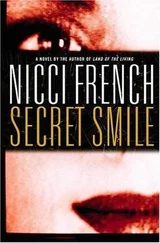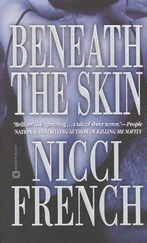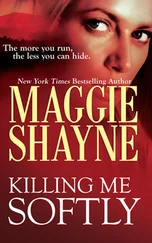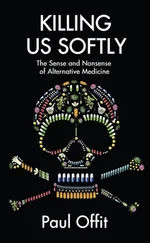Yet it was not to be. Who can speak of an individual’s inner torments? Who knows what drives the men and women who seek their fulfilment at the top of the world? It may be that the events on Chungawat had taken more out of him than even his friends realized. To us, he had seemed happier and steadier than at any time in his life, yet in his final weeks he became edgy, prickly, uncommunicative. I cannot help feeling that we were not there for him in the way that he had been there for us. Perhaps when the strongest men break they break terribly and irreversibly. I have lost a friend. Alice has lost a husband. The world has lost a rare kind of heroism.
I laid the paper down beside me, photograph turned away so I wouldn’t see his face, and blew my nose on a tissue. Then I gulped some of my drink, which burned my aching throat as it went down. I wondered if I would ever feel normal again. Deborah laid her hand tentatively on my shoulder and I smiled slightly at her. ‘It’s all right,’ I said.
‘Does it bother you?’ she asked. ‘Don’t you want everybody to know?’ The question seemed to come from a long way off.
‘Not everybody,’ I said at last. ‘There are a couple of people I’ve got to go and see, people I lied to and tricked. They deserve to know the truth. It’s probably for my benefit as much as for theirs. For the rest, it doesn’t matter now. It really doesn’t matter.’
Deborah leaned forward and clinked her glass against mine. ‘Dear Alice,’ she said, in a strained and formal voice. ‘I’m saying that in that way because I’m quoting from the letter I kept trying to write to you and then throwing away. Dear Alice, if I hadn’t been saved from myself, I would have been responsible for kidnapping you and God knows what else. I’m so, so sorry. Can I buy you dinner?’
I nodded at her, answering the unasked question as well as the asked one. ‘I’d better change,’ I said. ‘To compete with you. I’ve had a sweaty day at work.’
‘Oh, I’ve heard. Congratulations.’
A quarter of an hour later we were walking along the road arm in arm. It was a warm evening and I felt I could really believe that there would be a summer at last, with heat and long evenings and fresh dawns. Still we didn’t talk. I felt that there were no words left in me, no thoughts. We walked smoothly, in rhythm. Deborah led me into a new Italian restaurant she had read about, ordered pasta and salad and a bottle of expensive red wine. To assuage her guilt, she said. The waiters were dark and handsome and very attentive to us. When Deborah took a cigarette from its packet two of them sprang forward with lighters. Then Deborah looked me in the eye. ‘What are the police doing?’ she asked.
‘I spent a day last week with detectives from different forces. I told them roughly the same story I told just before you and Adam arrived.’ Deborah winced. ‘But this time they were paying attention and asking questions. They were pretty cheerful about it. "No further suspects are currently being sought" was the expression, I think. Detective Inspector Byrne, the one you met, was being very nice to me. I think he felt a bit guilty.’
A waiter bustled forward with an ice-bucket. There was a soft pop of a cork held inside a napkin. ‘With the compliments of the gentlemen.’
We looked round. Two young men in suits were raising their glasses to us, grinning.
‘What kind of place is this?’ said Deborah loudly. ‘Who are those assholes? I should go and pour this over their heads. God, I’m sorry, Alice. This is the last thing you need.’
‘No,’ I said. ‘It’s not important.’ I poured the smoking champagne into our glasses and waited for the froth to subside. ‘Nothing like that is important now, Deborah. Stupid men buzzing around like gnats, stupid battles, little rages, it’s not worth it. Life’s too short. Don’t you see?’ I clinked my glass against hers. ‘To friendship,’ I said.
And she said, ‘To coming through.’
Deborah walked me home afterwards. I didn’t ask her up and we kissed goodbye at the door. I climbed upstairs, to the flat I was going to move out of next week. This weekend I would have to pack my few possessions and decide what to do with Adam’s. They still lay all round the rooms: his faded jeans; his T-shirts, and rough jerseys that smelt of him so that if I closed my eyes I could believe he was still there in the room, watching me; his leather jacket that seemed to hold the shape of him still; his backpack stuffed with climbing gear; the photographs he had taken of me with his Polaroid. Only his precious scuffed climbing boots were gone: Klaus – dear Klaus with his face swollen by weeping – had laid them on his coffin. Boots instead of flowers. So he didn’t leave very much at all. He had always travelled light.
I had thought, immediately afterwards, that I wouldn’t be able to stay in this flat for an hour, for a single minute. Actually, I had found it perversely hard to leave. But on Monday I would close the brand new door, double lock it, and hand the keys to the agent. I would take my bags and bits and get a taxi to my new home, a comfortable one-bedroom apartment very near work, with a small patio, a washing-machine, a microwave, central heating and thick carpets. Pauline had once said to me, after she was through the worst of her stunned unhappiness, that if you behave as if you are all right, then one day you will be. You have to go through the motions of surviving in order to survive. Water finds its way into the ditches you have dug for it. So I would buy a car. Maybe I would get a cat. I would start learning French again and buying clothes. I would arrive at work early each morning and I knew I could do my new job well. I would see all my old friends. A kind of life could flow into these prepared spaces; not a bad life, really. People looking at me would never guess that these things meant little; that I felt as deep and empty and sad as the sky.
I could never slide back into my old self. My self before him. Most people would never know. Jake, happy with his new girlfriend, wouldn’t know. He would look back on the end of our affair and remember the pain and the mess and embarrassment, but it would be a dim memory and would lose all power to hurt him, if it hadn’t already. Pauline, heavily pregnant, wouldn’t know either. She had asked me, very shyly, if I would consider being her child’s godmother and I had kissed her on both cheeks and said that I didn’t believe in God but, yes, I would be very proud. Clive, ricocheting from attachment to attachment, would think of me as the woman who had known true romantic love; he would ask me for advice every time he wanted to go out with a woman or wanted to leave her. And I could never tell my family, or his, or Klaus and the community of climbers, or anyone at work.
To all of them, I was the tragic widow of the hero who had died too young, by his own hand. They spoke to me and probably of me with a hushed kind of respect and sorrow. Sylvie knew, of course, but I couldn’t speak to her about it. Poor Sylvie, who had thought she was acting for the best. She had come to the funeral and afterwards, in a frantic whisper, had begged my forgiveness. I said that I forgave – what else could I say? – and then turned and continued speaking to someone else.
I was tired, but I was not sleepy. I made myself a cup of tea which I drank out of one of Adam’s pewter mugs, a mug that had hung from his backpack when we went to the Lake District for our honeymoon, that dark and starry night. I sat on the sofa in my dressing-gown, legs tucked under me, and thought about him. I thought about the first time I had set eyes on him, across the road and gazing at me, hooking me with his stare, reeling me in. I thought about the last time, in the police station, when he had smiled at me so sweetly, letting me go. He must have known it was the end. We had never said goodbye. It had begun in rapture and finished in terror and now in such loneliness.
Читать дальше


